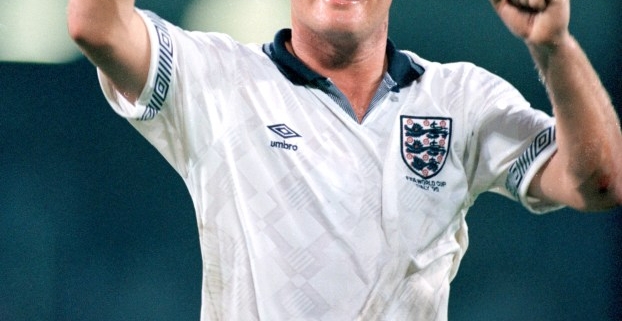Encouraging Creative Footballers
It’s been a problem in English football for a long time now. How do we encourage more creative footballers? the game changers, the ones capable of producing moments of inspiration, those that get you off your seat? They are the ones we call the geniuses of the game, the Mavericks.
We produce a lot of disciplined players who understand exactly what their role in the team is, how to stay organised and compact, they transition well in and out of possession, they maintain good distances, they work hard. We need these players of course, but maybe we lack that moment of inspiration that can break the deadlock and create a chance from nothing other than individual skill.
We’ve had a few over the years, Paul Scholes, Jack Grealish, Wayne Rooney, Joe Cole but for that last true magician of the game we probably need to look back to Paul Gascoigne. From the women’s game we currently have Lauren James and Ella Toone who produce these big moments on the biggest stage.
So why is it that we keep producing organised, disciplined and workmanlike players? And how do we produce more flair and exciting footballers? For me a large part of it goes back to grassroots and the environment that we create in training sessions and matches. The pressure that we put on our young players can stifle creativity by highlighting mistakes and failure. If we want to promote creative football we need to take a step back at times, allow players the freedom to make their own decisions, and most importantly, be accepting that it won’t always work, and that’s ok.
During my time at The FA I worked closely with grassroots clubs to help upscale their volunteer coaches in a mentoring role. I once attended my first session with a new club, I introduced myself to the coach who gave me an insight into his squad, Robin (not his real name) was their standout player, the coach informed me. “he’s brilliant but he’s greedy, he needs to learn to pass more”. I ran a little 2v2 practice, Robin received the ball and started to sprint forward, both opponents went across to tackle him, leaving his teammate in acres of space in front of the goal. Robin dipped a shoulder to his left, wrong-footing his opponent before producing a Maradona turn to pull the ball between the defenders, nipped through the gap and scored. I stopped the game.
Approaching Robin I asked him “Did you make the right decision there?”
“No” he replied looking across at his coach, “I should have passed to my teammate.”
“Why?”
“Because he was in lots of space and was in front of the goal”.
“Ok” I replied, “Let me ask you another question….Did you score?”
“Yes.”
“So do you still think that you made the wrong decision?”
“No.” He said with a smile.
“I agree, but well done for recognising another opportunity.”
This was an easy opportunity to encourage the self-belief and skill that Robin had shown because he had success by scoring a goal in the end. But would my reaction have been the same if he lost the ball? Or would I have told him to pass instead? Clearly his coach felt that he should. But…..Robin recognised where his teammate was, he told me this when I questioned him, so he wasn’t simply running with his head down, he saw the opportunity and he made a decision. He trusted in his own ability and he went for it. That should be applauded regardless of the outcome.
The issue we have is that coaches are highlighting failure (often in front of the whole group) and instructing players to do it a different way, their way. Imagine being a young player, trying a new skill you’ve been practicing, then being told in front of all your peers and parents that you made the wrong choice. What would you do next time you get the ball? It would take a very brave child to ignore their coach and try it again. Maybe that’s why Gazza succeeded, he did have the confidence to do exactly that.
Sir Bobby Robson once said, “He was all over the pitch, he played everywhere except for where I told him to play. But he’s a tremendous talent.”
Sir Alex Ferguson said “He was the best player of his era, a breath of fresh air because he played with a smile.”
It’s arguable that Bobby Robson saw the best of Gazza, because he accepted him for the player he was. He didn’t try to change him or put the reins on him. He supported him, encouraged him and gave him the freedom to express himself. That’s exactly what we need to do with our young players. Of course not everybody can be a Gazza, but when we see talent we need to encourage it and accept that sometimes they will try and fail, but support them to get up and try again. If we can create an environment where players feel they have the freedom to try and fail, then we will start to see new ideas on the pitch.
Speaking with Ella Toone I know she attributes much of her success to time playing in the park with her friends, trying new things, emulating her heroes away from the pressure of coaches and adults controlling her every move.
Similarly, Johan Cruyff attributed with inventing the ‘Cruyff turn’ once said. “I trained for 3-4 hours a week at Ajax when I was little, but played 3-4 hours everyday on the street. So where do you think I learnt football?”



